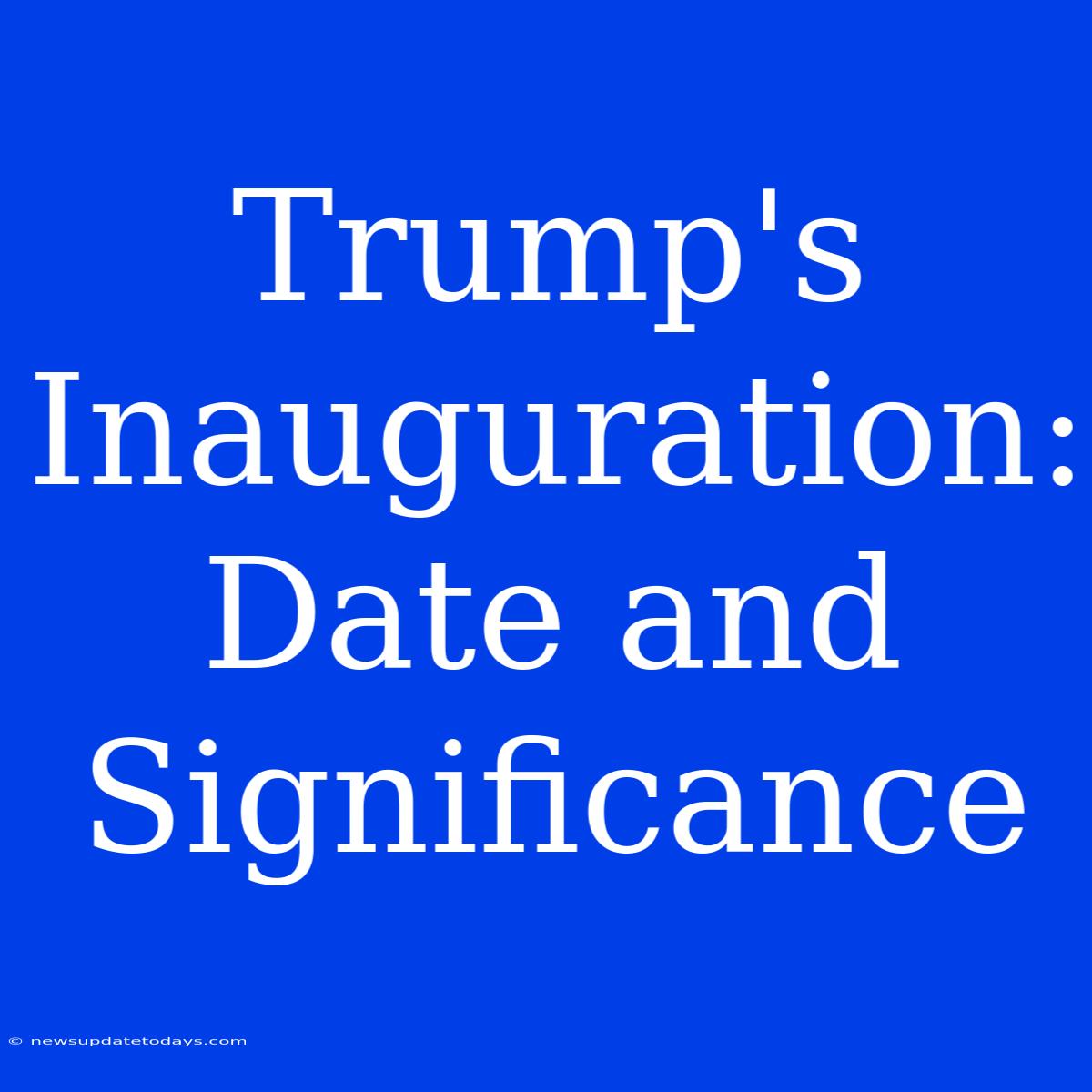Trump's Inauguration: Date and Historic Significance
Donald Trump's inauguration as the 45th President of the United States, held on January 20, 2017, marked a pivotal moment in American history. This event transcended a simple transfer of power; it symbolized a dramatic shift in the nation's political landscape and sparked intense debate and analysis that continues to this day. Understanding the date and the profound significance of this inauguration is crucial to comprehending the subsequent four years and their lasting impact.
The Date: January 20, 2017 - A Constitutional Mandate
The date itself is enshrined in the US Constitution. The 20th Amendment dictates the commencement of a new presidential term, ensuring a smooth transition of power. This date, regardless of the election outcome, provides stability and avoids a power vacuum. The inauguration ceremony, held at the US Capitol in Washington D.C., is a time-honored tradition, steeped in symbolism and ritual.
Beyond the Date: A Significant Shift in Political Discourse
Trump's inauguration was unlike any other in recent memory. His campaign, marked by unconventional rhetoric and populist appeal, shattered established political norms. His victory itself was deeply divisive, leading to protests both before and after the event. The ceremony itself drew record-breaking crowds, with significant differences in interpretations of their size and composition.
Key Aspects of its Significance:
-
Populist Movement: Trump's victory represented a surge in populist sentiment, a rejection of the political establishment by a significant portion of the electorate. His promises to "Make America Great Again" resonated with voters feeling left behind by globalization and economic changes.
-
Shift in Political Rhetoric: Trump's campaign and subsequent presidency were characterized by a more confrontational and less nuanced style of political communication than his predecessors. This departure from traditional political discourse contributed to heightened polarization.
-
Impact on Global Affairs: Trump's "America First" approach signaled a significant shift in US foreign policy, leading to renegotiated trade deals, withdrawal from international agreements (like the Paris Climate Accord), and altered alliances.
-
Domestic Policy Changes: His administration oversaw significant changes in domestic policy, including tax cuts, deregulation, and appointments to the Supreme Court that shifted the ideological balance of the court.
-
Long-Term Consequences: The effects of the Trump presidency continue to be debated and analyzed. Its impact on American politics, the global order, and societal divisions remains a subject of ongoing scholarly and public discussion. The political climate and societal polarization that followed his election are still being felt today.
Conclusion: More Than Just a Date
The date of January 20, 2017, is more than just a calendar entry; it marks a turning point in American political history. Understanding the context, the events surrounding the inauguration, and the subsequent actions of the Trump administration is vital for comprehending the current state of American politics and its place in the global landscape. The legacy of this inauguration continues to shape the political discourse and future trajectory of the United States.

